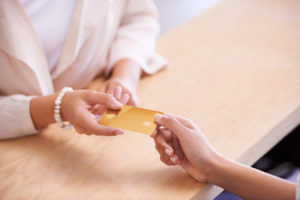 In my years of providing therapy, I have learned that people tend to do whatever it takes to feel comfortable in their own skin. The human mind and body are quite capable of creating internal conditions that make moment-to-moment existence nearly intolerable. So we seek relief—even if this comfort lasts only a few moments, and even if the “relief” causes intense discomfort later. The delayed consequences often stretch across several different areas of the person’s life. It’s like getting what you want right now, but paying with a credit card. The payment comes later and is more costly.
In my years of providing therapy, I have learned that people tend to do whatever it takes to feel comfortable in their own skin. The human mind and body are quite capable of creating internal conditions that make moment-to-moment existence nearly intolerable. So we seek relief—even if this comfort lasts only a few moments, and even if the “relief” causes intense discomfort later. The delayed consequences often stretch across several different areas of the person’s life. It’s like getting what you want right now, but paying with a credit card. The payment comes later and is more costly.
I have found this to be a fundamental rule of human nature, and I believe this nearly irresistible extinction of intolerable discomfort is a self-preservation strategy. I also notice it takes experience and support (and good self-regulation) to transform this survival impulse into healthier, more useful behavior.
Now, this is not an “excuse” for addictive behaviors. Excuses and moral judgments are, for the most part, irrelevant to this article. Somatically oriented therapists are trained to assess what is happening in a system—in this case, a person’s nervous system, and often, their family system. Then we assess what function it might be serving. In so doing, we realize that cognition and morality are much more recently developed, and weaker, than those lower-brain survival energies. Such higher-order thought is much less robust and powerful than limbic feelings (danger, attachment) or reptile brain (sensation, survival) impulses. If you don’t believe me, try making yourself fall out of love with someone. Or try solving a math problem just after hitting your thumb real hard with a hammer. (These examples are hypothetical thought exercises—so no, you shouldn’t actually try the last one.)
Overall, this distribution of internal power is a good thing. Survival energies can take over in milliseconds. They trigger quick, automatic action to save our lives, before the slower, more complex cognition has a chance to analyze (or overthink) what’s going on. These intense survival energies are how a 5-foot 2-inch mother can lift a car off of her child. Essentially, they work for our survival. And they are very powerful.
However, survival is so important that these same lower-brain survival energies can err on the side of being too prominent. They tend to become stuck in unproductive patterns that are very difficult to overcome. Addiction is a prime example of one of those imbalanced patterns. In 12-step groups, when someone wants to stay sober and is trying to resist the pull of their old, addictive, lower brain patterns, it is said they are “white knuckling” their sobriety.
Here is an example of a common sequence in an addictive pattern of behavior:
- Person perceives stressor (external or internal)
- Body responds with SNS charge (anxiety, anger, sadness, etc.)
- Person doesn’t know what to do with this charge
- So they attempt to ignore it
- Over time, repressed feelings become stronger and more toxic
- Build-up of toxic emotion and somatic sensations
- Eventually, a breaking point is reached and the person says “To heck with it!” and turns to their substance or activity that effectively reduces the “sting” of the charge. (This outcome is even more likely when the substance or activity is physically addictive and not doing it creates physical withdrawal symptoms.)
- The person experiences sweet relief
But then, at some point, there are consequences. There are many examples. Financial loss. DUI. Feeling sick. Finding out one acted in an embarrassing manner. Contracting a disease. And so on.
And there’s another catch: If the emotional charge from the consequence feels intolerable—too much to bear—then the person will usually turn back to the momentary relief of the substance in order to quiet this new emotional charge. This tends to produce refrains of “How could you do this again?” from loved ones.
Recovery involves a simple equation: People tend to begin the change process when the pain they experience from their addiction outweighs the relief.
So, as you can see, the addictive cycle is fed by fight/flight survival charges. These charges occur within the addicted person and within the important people in their lives. And remember, fight/flight survival charges are highly contagious, bouncing back and forth between people. Herein lies the cycle of addiction.
Recovery involves a simple equation: People tend to begin the change process when the pain they experience from their addiction outweighs the relief. (This is the same reason heart attack survivors often quit smoking, or make changes in their diet or exercise, after the cardiac event.)
What can anyone do about these tenacious addictive cycles? I am not able to offer any therapeutic advice through this medium, but here are some general steps that are commonly important in healing:
De-Pathologize
Stop making the addicted person “bad” and “wrong.” In other words, take out the moral judgment and all the charge that goes along with that. Even if you are the addicted person! That does not mean you don’t get to have your feelings about the addicted person, their actions, or the consequences of those actions. It’s vital to feel your feelings (but not get stuck in them). This step involves accepting that the person’s biological self-preservation actions are currently out of their control; that this is a human problem that happens to many, despite their best intentions; and this does not make them worth less as a human being. This can be a tricky balance, often requiring the help of a therapist or 12-step sponsor.
Detoxify
This involves stopping the behaviors that define the addictive cycle. If the addictive substance is physically dangerous, detoxification must happen under medical supervision. If you are not the addicted person but your life is closely tied to theirs somehow, detoxifying probably involves learning how to set healthy emotional and physical boundaries. Therapy and Al-Anon have helped many in this endeavor. For some family members, detoxify equals depart from the life of the addicted person, at least until they are able to safely manage the interpersonal relationship.
Deactivate
If you are the addicted person, this means first developing stability in your new life choices (e.g., no alcohol or sexual acting out). Then you can develop affect tolerance: the ability to sit with, feel, and help your body learn how to deactivate your own emotions—instead of having the substance or activity do it for you. (Of course, addictive behaviors don’t really deactivate the underlying emotions; they just bring temporary relief.) Affect tolerance is a physiological capacity of the nervous system, and it can be strengthened. Most often, this step requires the consistent support of a 12-step group, and, many times, a psychotherapist with specific training in addictions and affect tolerance. Essentially, the idea is to get rid of the extra fight-or-flight survival charges that fueled the addiction in the first place.
De-Stress
This involves self-care and remembering that life and recovery are not all deadly serious at all times. As they say, “Laughter is the best medicine.” Some people in early recovery (and their family members) need modeling and support in order to learn to have fun, since they did not receive this at home. Take good care of yourself, as you are likely to need it for the recovery journey ahead—but also because, as a human being, you deserve it.
© Copyright 2017 GoodTherapy.org. All rights reserved.
The preceding article was solely written by the author named above. Any views and opinions expressed are not necessarily shared by GoodTherapy.org. Questions or concerns about the preceding article can be directed to the author or posted as a comment below.

 The Charge of the Somatic Psychotherapist: Rewiring a Living System
The Charge of the Somatic Psychotherapist: Rewiring a Living System Is the Life You’re Living in Tune with Your Natural Rhythms?
Is the Life You’re Living in Tune with Your Natural Rhythms? ‘Why Do I Do That?’ The Silent Sway of the Threat Response
‘Why Do I Do That?’ The Silent Sway of the Threat Response